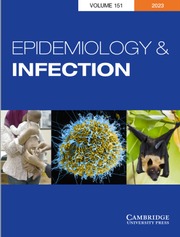Article contents
The lethal effect of cotton-wool lipid on tubercle bacilli in acid conditions and its prevention by surface-active agents
Published online by Cambridge University Press: 15 May 2009
Extract
Long-chain fatty acids are not appreciably bactericidal to tubercle bacilli at neutral pH, but become so even in slightly acid solution. In this way tubercle bacilli, normally resistant to 0·1 N hydrochloric acid (pH 1·0), are rapidly killed at this pH if traces of fatty acid are present, such as can be found inside test tubes that have been plugged with cotton wool and sterilized by dry heat.
The lethal effect is largely prevented by non-ionic, cationic, and to a lesser extent anionic detergents, which probably take up the fatty acid into the micelles so that it can no longer attack the bacilli.
The various fatty acids identified in the deposit from heated cotton wool were tested individually and found to be bactericidal. They comprised the usual C12 to C18 saturated acids and also oleic acid. The latter, however, showed no particular lethal toxicity in excess of that shown by, for example, palmitic acid. Shorter chained fatty acids than those represented in the deposit were less lethal.
We wish to thank Dr A. T. James for the chromatographic analyses and for advice; Dr R. J. W. Rees for carrying out counts of total acid-fast bacilli in two experiments; Messrs. Robinson & Sons Ltd, Chesterfield, for information on the industrial processes involved in the preparation of cotton wool; Mr E. J. Latham for advice on preparing glassware; and Dr J. Marks for helpful criticism of the manuscript.
- Type
- Research Article
- Information
- Copyright
- Copyright © Cambridge University Press 1962
References
- 10
- Cited by


